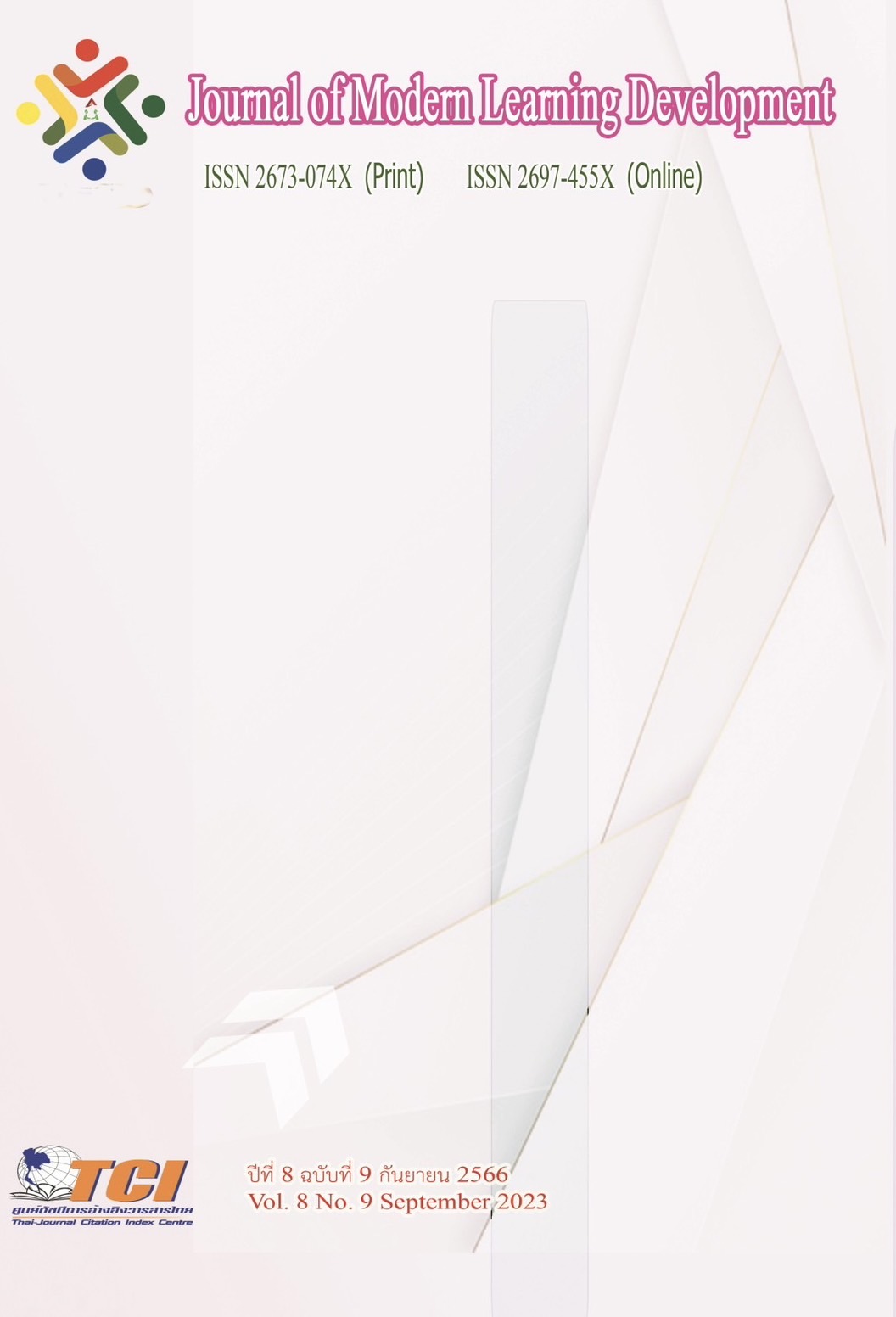The Current Situation of Inheritance of the Baishi vocal music of Lisu ethnics in Lushui City Ethnic Middle School music education, Nujiang Prefecture, Yunnan province, China
Main Article Content
Abstract
The research objectives were (1) To survey on Baishi vocal music of Lisu ethnics group at Lushui City Ethnic Middle School music education, Nujiang Prefecture, Yunnan province, ChinaThe methodology was mixed methods research which collected data by questionnaires survey. The population was 1,300 students at Lushui Minzu Middle School, Nujiang Prefecture, Yunnan Province. The sample was 297 students which use the simple random sampling method. The research interviewed six key informants who involves with Baishi vocal music.
The research findings were (1) Most students have a shallow grasp of the source of "Baishi" vocal music and related knowledge points or do not understand. Only 33 percent mastered the unique skills of "Baishi" vocal singing, and only 39 percent knew the source of Baishi. Most students can sing a little melody, and 76% choose to sing a little "Baishi." Through the interview data from experts, it can be concluded that, as far as the "Baishi" vocal music class is concerned, the current teaching method is still basically the traditional teaching method, that is, the method of word of mouth, and the content is the original teaching content and form of folk artists in the community.
Article Details
References
Cao, C., & Wang, F. (2011). Significance and policy perspective of National culture protection
and inheritance in China. The mass of literature and art. (23), 222-223.
Hu, Y. (2020). A preliminary study on the singing style of Baishi, one of the "three major tones" in Lisu. China Nationalities Expo. (24), 146-148.
Suwanpakdee, S. (2018). Sounds of Lisu music to new music for guitar and string quartet,
Malaysian Journal of Music. 7 (1), 159-179.
Wu, Y. (2018). Break traditional teaching concepts and innovate Junior High School Music
Teaching method. China New Communications. (16), 179.
Yang, L. (2020). A Brief analysis of the cultural connotation of Baishi folk song of Nujiang Lisu Nationality. Cultural Industries. (31), 157-160.
Zhao, S. (2006). Lisu "three major". National music. (02), 30-31.
Zhao, X. (2006). A Series of Books on the Brief History of China's Ethnic Minorities: Chuai.
Zhenyu, Hua Zugen (EDS.) Yearbook of Chinese Ethnic Studies. Minzu University of
China Press. 690-693.


